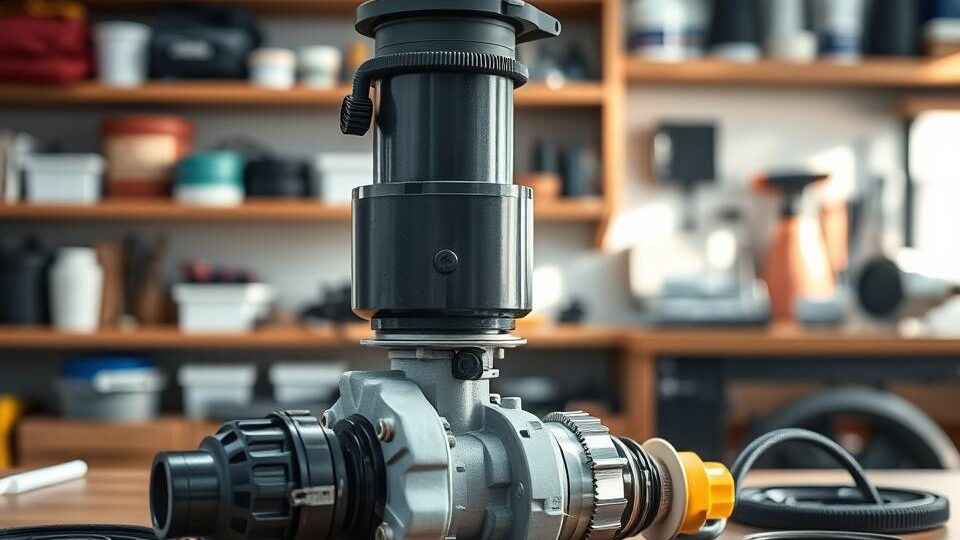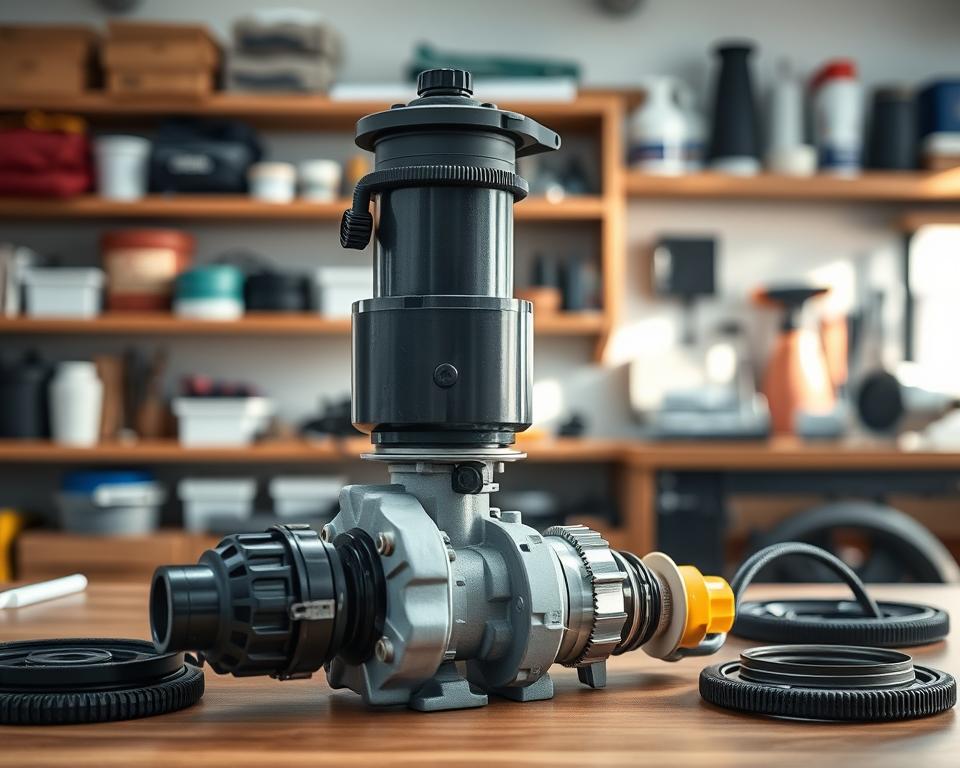
High-Volume Septic Pumping for RV Parks in China Lake
Septic Tank Pump Swap: Your Guide
Have you ever thought about the result of a Septic Tank Pump breakdown? For many, it’s a situation that leads to considerable distress and unforeseen expenses. Recognizing the necessity for quick replacement is critical in maintaining a efficient and clean Septic system. By scheduling routine reviews, including rapid repair needs, you lengthen your system’s life while sidestepping pricey emergencies. Companies like All in Sanitation play a key role in helping keep your Septic tank performing well. This guide offers a clear insight of Septic Tank Pump replacement, detailing alert signals and maintenance tips for RV sewage pump.
Main Points
- Understanding the job of a Septic Tank Pump is essential for homeowners.
- Timely Septic Tank Pump replacement can reduce long-term expenses.
- Routine upkeep and cleaning are critical to lengthening the lifespan of your Septic system.
- Qualified service can effectively manage Septic system Pump repair and maintenance.
- Catching preliminary clues of Pump failure can sidestep high repair bills.
Knowing Your Septic System
A Septic system is crucial for homes without access to city sewer lines. It manages household wastewater responsibly. The Septic tank is core to this system’s process, acting as a key component in the process.
The Septic tank receives sewage, separating solids from lighter matter. This separation is critical for effective wastewater treatment. The treated water then moves to the drain field, where it gets further filtration by the soil, shielding groundwater.
Understanding how your Septic system runs can extend its life and efficiency. Consistent care is essential for the Septic tank and the system’s overall performance. Homeowners must learn about their system’s components to avoid environmental damage and bypass expensive fixes.
What is a Septic Tank?
A Septic tank is a underground, watertight container integral to household waste management systems. It’s necessary to appreciate the Septic tank’s main purpose: it manages sewage waste storage by processing it. This setup functions by sorting solids from liquids, fostering basic wastewater treatment and sanitation.
Its operation depends on naturally occurring microorganisms that break down waste. In areas without centralized sewage treatment, Septic tanks are crucial. They store sewage long enough for solids to descend, forming sludge. Meanwhile, liquid effluent rises to the top, setting the stage for filtration in the drainage field.
Preserving a Septic tank in good condition is critical for its performance and longevity. Regular maintenance is important to avoiding problems like backups and overflows. These problems can result in pricey restorations and pose risks to the environment. In essence, Septic tanks hold a key place in ensuring hygiene and safety, especially in rural areas.

Indicators You Need a New Pump
Homeowners should be aware of signs that their Septic tank may need a new Pump. A noticeable sign is experiencing foul odors by drains or in the garden, pointing to a system failure. Experiencing regular or significant sewage backups in your home requires swift action to prevent worse issues.
Noticing slow draining drains points to a potential problem. Household fixtures that take a long time to drain might indicate a Pump failure or a clog requiring an expert’s evaluation. Additionally, sections of excessively lush vegetation in your yard could indicate trouble; this shows waste leakage, resulting in overflow concerns.
To prevent major and expensive repairs, homeowners should address these indications promptly. Scheduling periodic reviews and maintenance is essential for the Septic system’s top function.
| Signs | Description |
|---|---|
| Foul Odors | Unpleasant smells around drains or yard suggesting system failure. |
| Sewage Backup | Recurring overflows in sinks or toilets pointing to potential Pump issues. |
| Slow Draining Drains | Fixtures draining slowly can point to blockages or Pump malfunction. |
| Lush Vegetation | Areas of excess growth near the tank indicating possible overflow. |
Pump Replacement Frequency
Understanding the schedule for replacing your Septic Pump is vital for a well-functioning Septic system. It’s smart to have your system inspected every three years. A certified technician during these reviews offers details into how well your system runs.
Usually, emptying the Septic tank becomes needed every five years. However, households with greater water use or a higher occupancy might need shorter service intervals. Good maintenance of your Septic system wards off high restoration costs and extends its lifespan. Technicians in Septic services can create a maintenance plan that aligns with your usage and the characteristics of your system.
Remaining prepared with Septic Pump replacements ensures your system’s efficient operation and defends your home investment. Routine reviews and maintenance sidestep unexpected outlays. They support efficient system flow.
Cost of Septic Tank Pump Replacement
The Septic Pump replacement cost changes, affected by many variables. Homeowners should anticipate paying from $500 to $1,300 for a new Pump. This price bracket covers changes in the style of Pump and material needs. It’s crucial to account for the Pump and Septic tank servicing costs for the setup and mandatory inspections.
Costs can also rise due to issues within the Septic system or local labor charges. Mandatory restoration, caused by wear or harm, could raise the total outlay. In calculating financial estimates for Septic services, include charges for regular upkeep, assessments, and any unexpected crises since these factors greatly help with maintaining your system’s longevity.
Budgeting for periodic Septic service diminishes the burden of unforeseen costs. Advance planning aids homeowners in efficiently handling expenses linked to the Pump’s replacement and system upkeep.
Process of Septic Tank Pump Replacement
The Septic Tank Pump replacement begins with a comprehensive inspection of the system. This initial check finds any additional issues other than the Pump itself. The faulty Pump is then taken out properly and swiftly.
Installing the new Pump entails exact care to tight connections, ensuring no leaks. Qualified technicians ensure the installation is carried out right, lowering future issues.
The last step is a detailed final inspection. It confirms optimal performance, giving homeowners confidence. With expert help, the process is smooth, with little disturbance.
Pump Installation Guidelines
When performing Septic Pump installation, it’s vital to follow best practices. Hiring skilled professionals secures compliance with local regulations. They skillfully handle the installation complexities, preventing errors common in inexperienced setups.
Keeping to strict Septic service standards is key for smooth system flow. Choosing proper parts and durable materials extends the Pump’s life and optimizes the Septic system’s efficiency. This precise approach enhances maintenance and overall performance longevity.
- Choose a trusted service provider who is experienced in Septic systems.
- Confirm that all necessary permits and inspections are in place before work commences.
- Select Pumps that suit the specific requirements of your Septic system.
- Include a pre-installation inspection to check site conditions.
- Keep in mind the layout and flow of the Septic system during installation.
Following these guidelines ensures a smooth installation process. It also provides a dependable system for efficient waste handling.
Septic Tank Maintenance Tips
Stopping expensive issues with your Septic system originates with periodic upkeep. By following easy guidelines, homeowners can maintain their Septic systems’ efficiency. Setting up consistent assessments is a smart move. It detects and tackle problems before they become significant.
It’s also vital to avoid flushing dangerous items down the drain. Grease, chemicals, and items that don’t break down can harm your system. Reducing water use during high-usage times can also improve system handling.
Arranging specialist cleanings with entities like All in Sanitation is vital for Septic health. Knowing what you can and cannot do with your Septic tank can materially increase its lifespan and shield your household environment.
Cleaning Your Septic Tank
Regular Septic tank cleaning is essential for your system’s extended function and efficiency. The process comprises sludge removal, checking for damages, and ensuring everything runs smoothly. These steps are critical to keep your system running smoothly and prevent costly repairs.
A comprehensive Septic maintenance plan should include regular inspections and cleanings that align with your specific needs. Homeowners must realize the importance of on-time service to sidestep difficulties like backups. Employing specialists ensures the cleaning is detailed, supporting a hygienic home.
| Service Type | Frequency | Benefits |
|---|---|---|
| Pumping | Every 3-5 years | Prevents system failure and backups |
| Inspection | Annually | Identifies potential issues early |
| Maintenance | As needed | Increases the lifespan of the system |
Spending on routine Septic tank cleaning reduces expenses and lengthens your system’s life. It maintains trouble-free waste handling. Acting now secures your Septic system’s efficiency for the future.
Picking a Pump Replacement Provider
Locating a dependable Septic service provider is important when replacing a Septic Tank Pump. Start by ensuring their certifications and licenses. Such credentials demonstrate the company’s compliance with industry norms, vital for a seamless replacement process.
Delving into customer reviews is also a vital move. Past feedback reveals a lot about service quality, aiding in the filtering process. Go with companies with a steady track record of stellar work ethics and customer support.
Acknowledge recommendations from your network too. Insights from friends and neighbors can reveal top-notch Septic services in your vicinity. Always seek detailed examples of their positive experiences with these services.
Finally, compare the service scope and cost from various firms. A careful analysis secures exceptional service and enhances the value of your expenditure. Observing these guidelines assures your Septic system receives the premium care it needs.
DIY or Hire a Pro?
Homeowners often find themselves pondering whether to tackle Septic issues alone or seek professional help. DIY Septic maintenance appears attractive for basic fixes and upkeep. For example, monitoring Septic tank levels or clearing drainage lines can be done solo.
On the other hand, recognizing when to hire Septic professionals is important for serious problems. Heavy-duty repairs, replacing systems, or major clogs need specialized gear and know-how. Without the necessary skills, attempts to fix these problems can result in contamination and large-scale damage.
Deciding between DIY and professional help calls for evaluating the job’s complexity. Presented below are examples demonstrating when DIY is suitable and when professional Septic services are advised:
| Situation | DIY Feasibility | Need for Professional Help |
|---|---|---|
| Routine maintenance (e.g., tank level checks) | Yes | No |
| Minor clogs in drain fields | Yes | No |
| Major Septic Tank Pump failure | No | Yes |
| Complex sewage backflow issues | No | Yes |
| Regular system inspections | DIY optional | Yes for thorough checks |
Making informed decisions on these matters assures safety and efficiency. Selecting well safeguards the Septic system but also prevents unplanned bills.
In Closing
Grasping the workings of your Septic system is vital for its effective management and your home’s performance. Identifying early indicators of issues prevents high repair bills and protects the system’s wellbeing. This anticipatory approach supports the environment and enhances your property value.
To preserve your Septic system in prime condition, make sure of maintenance. This entails regular inspections and prompt professional Pumping. This modest investment maintains your home’s safety and your household welfare. Your Septic system performs optimally with good care.
Our team at All in Sanitation is devoted to supplying first-rate Septic care. We bring the knowledge essential to ensure your system performing at its best, protecting your home investment over time. With our focus on quality service and steadfastness, we’re prepared for your Septic maintenance needs.